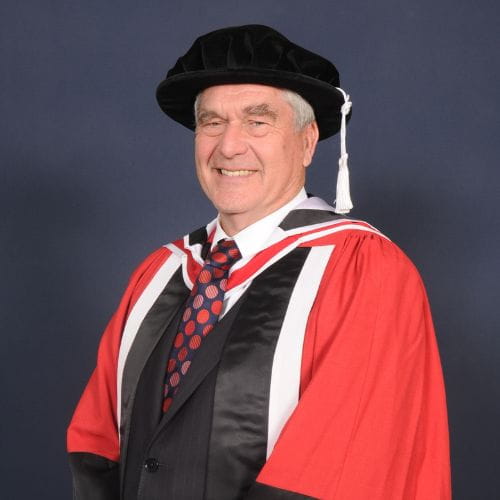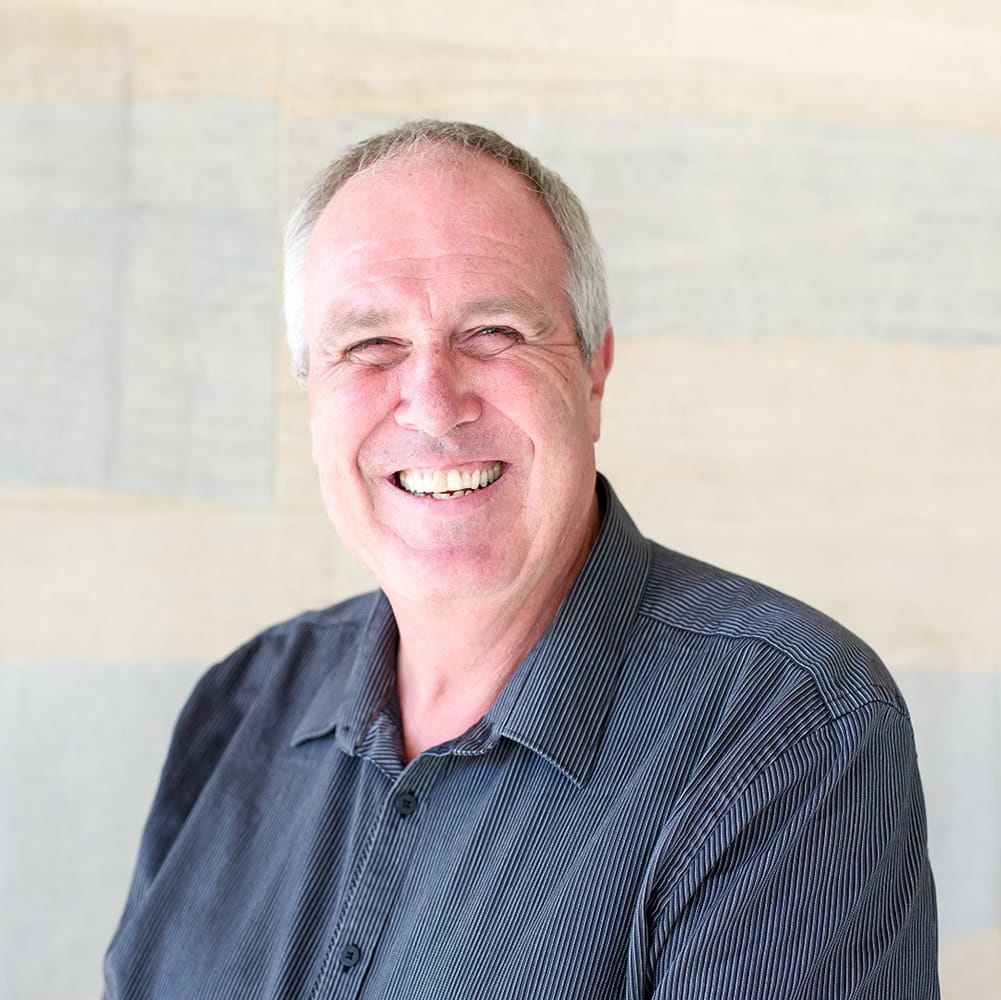
There were many aspects to John’s life, as an academic, a leader and advisor, a family man, and a very keen sailor.
In 1973, John came to the University of Essex as the Founding Professor of Biology. There was no Biology Department at the time, so he had an office in the then Chemistry Department. The small community of early academics would often have lunch together with. Right from the start John was an inspiring academic, encouraging others to follow new lines of research. A colleague's PhD student was inspired by John to grow slime mould to work on slime mould cytochromes. Slime moulds were one of John’s early interests and it is interesting to note that work published on slime moulds in 2025 still references John’s early work. Furthermore, there are a class of algorithms, known as slime mould algorithm (SMA), that mimic the extraordinary intelligence of slime moulds. John’s first real home at Essex was in the then newly established Tabor Laboratory in Wivenhoe House. John helped build a new department, appointing academics some of whom are still associated with the current School of Life Sciences.
In 1976, John took his career in science and university leadership to the Cabinet Office, where he worked on secondment as the Chief Scientific Adviser until 1981. A member of our staff who has retired this summer recalls a possibly apocryphal story about his recruitment. John had always been a keen sailor, and while at Essex he did not own a car, preferring to walk between Wivenhoe and here. But when he was being considered for the Cabinet Office post, a secret service man came to interview one of his post-docs about why the departmental head had no car. There had to be a secret reason, supposed the spy; surely not because he enjoyed walking! Even then, perhaps, walking was considered odd behaviour.
In 1981, John was appointed Vice-Chancellor at the University of Salford. This was a leap into a very challenging position. At the time, the Prime Minister of the day, a certain Margaret Thatcher, had decided to change university funding (does this sound familiar?). She resolved to cut funding to universities as a whole by 15%, but critically these cuts were not to be spread evenly - Aston, Bradford and Salford were fingered, and Salford fared the worst with a 44% cut. John remembered the dreadful atmosphere at the time he arrived. “I was told that there were some members of staff who just sat weeping in their offices, refusing to come out.” Of course, what he didn’t say is that this is what happens in universities at the best of times! Under Sir John’s ten year leadership, Salford became stronger, diversified, learning to work closely with industry, and providing an excellent experience for students.
John then took on the post of Director at the LSE to the mid-1990s, and then went on to have a distinguished later career in steering the health service. He has been Chair of Barts and London NHS Trust, Deputy Chair of the Institute of Cancer Research, and on the board of Colchester’s Hospital University Foundation Trust. He has also been a Director of Granada TV and the Granada Group, chair of the British Library Board for five years, and from 2002 President of the Council for Assisting Refugee Academics (CARA), which has been providing a vital service for refugee academics since the 1930s.
Back in Wivenhoe, John was an active member of the local community, including as a member of the management committees of the Nottage Maritime Institute and the Wivenhoe Sailing Club. Though he was born and schooled in Devon, then studied at Oxford and Leicester, John has become one of Wivenhoe’s famous sons.
His contribution to the University of Essex , higher education and science was recognised with an honorary degree in 2011.
Just before this in 2008, John received a knighthood in the Queen’s New Year Honours - an extremely well-deserved recognition of a long career in public service.
Tribute from John’s family
"Dad, or when he was knighted 'Sir Dad' as we liked to call him, was a larger-than-life character in public and private life. He was always striving for the next thing, happier to start something rather than run it but at heart, a research scientist. He had a wealth of anecdotes and stories and was wonderful to listen to. Even as he was slowing down in the last few years (and he was Chair of the Wivenhoe Pub Company until 2020 so didn't 'slow' down until his 80's) he became an avid watcher of lectures on You Tube (on a wide range of subjects) and continued to read a daily paper, the Economist, New Scientist and The Week. He leaves four children, his wife Auriol, three stepchildren and 18 grandchildren. His biggest regret in life was not buying a bigger boat earlier!"
Links
Order of Service
Family Tribute page
Personal tributes can also be added below. Comments are moderated and will be reviewed and approved during normal working hours.


